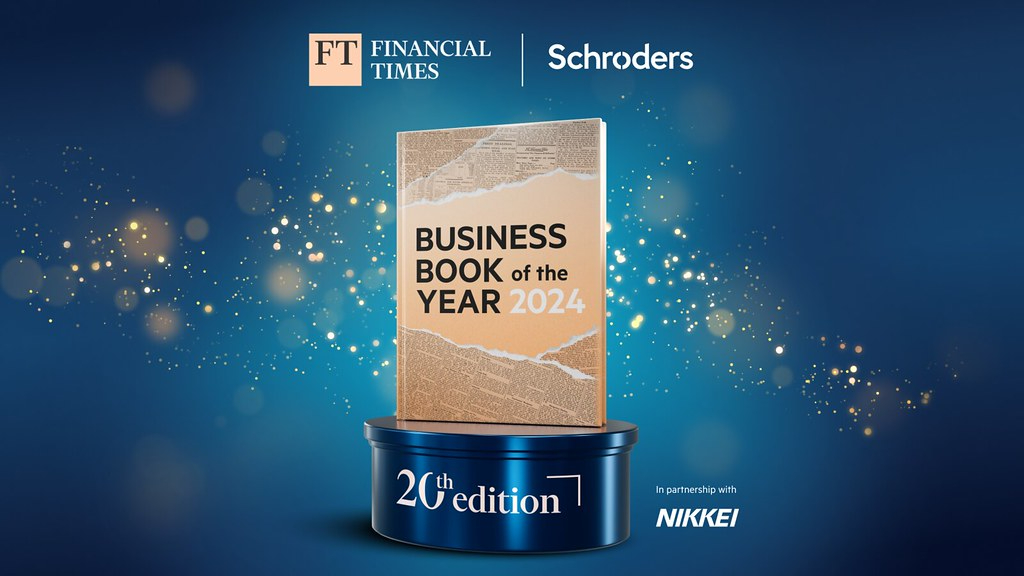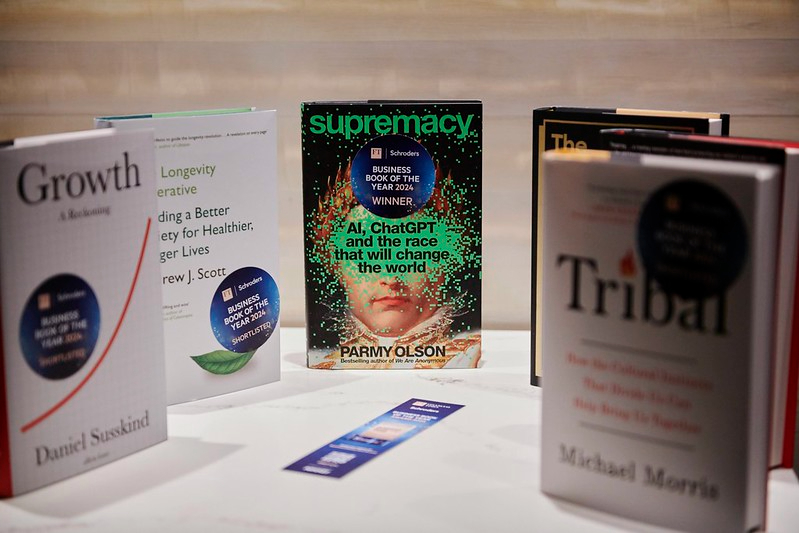AI race, Trump's finances, and the transformation of warfare: the top business books of the year from the Financial Times.
By recognizing the laureates, the jury aims to draw attention to the major trends in the global economy during a specific period. Hence, in 2022, amid the onset of a large-scale war in Ukraine, the disruption of logistics chains, and the intensification of geopolitical competition between the USA and China over future technologies, it was not surprising that the book "The Chip War" triumphed.
However, the winner of 2023 surprised the world. Despite the widespread interest in the rapid development of artificial intelligence (AI) following the release of the ChatGPT chatbot last year - for the first time in the history of the award - the winning entry was a work on management: the book "Right Kind of Wrong: Why Learning from Failure Can Teach Us to Thrive" by Harvard Business School professor Amy Edmondson.
Nonetheless, AI remains a focal point for FT - this year, the book by Bloomberg journalist Parmy Olson titled "The Advantage: AI, ChatGPT, and the Race That Will Change the World" won. This marks the fourth time in the past five years that the top award has gone to a book focused on the tech sector's development.
The book discusses the competition in AI development between "fathers" of OpenAI Sam Altman and DeepMind's Demis Hassabis. It also highlights how, under pressure from influential backers like Microsoft and Google, these startups are gradually moving towards the commercialization of their products.
What other books were contenders for the award? And what sets Supermacy apart from the other finalists?
How the Winner Was Chosen
The selection process for the anniversary award was the same as in previous years: authors and publishers could submit entries from April 22 to June 30 on a special website.
More than 600 submissions were received - in August, FT journalists narrowed it down to a list of 16 contenders. This included books about the AI race and the impact of artificial intelligence on recruitment, the role of Amazon in global e-commerce, the U.S. defense procurement system, and the struggle for lithium - a critically important metal for the electric vehicle industry.

Also included in the list were an economic analysis of religions and a study of changes in the corporate sector during the digitalization era. In addition, the award organizers noted the autobiography of former Citigroup swap trader Gary Stevenson and a book about Microsoft co-founder Bill Gates.
Following Donald Trump's victory in the U.S. elections, particular attention was drawn to the investigation by NYT reporters into his finances - "The Lucky Loser: How Donald Trump Squandered His Father’s Fortune and Created the Illusion of Success". "Ras Buttnor and Susanna Craig gathered tax information and conducted dozens of interviews with sources to uncover the truth behind Trump's claims of having built a thriving multi-billion-dollar business empire," - describes the book FT.
In September, the jury, which included FT editor Roula Khalaf, as well as representatives from Nikkei, the Chicago Business School, Schroders, and Mozilla, selected six finalists. This list included, among others, studies on the impact of AI, the economy of tribal instincts, and longevity issues.

Parmy Olson received the £30,000 award from the Financial Times, while the other five finalists received £10,000 each. The books of the winner and finalists are available for purchase in English at Ukrainian bookstores and on Amazon.
Finalists
"Corporation in the 21st Century: Why (Almost) Everything We Are Told About Business Is Wrong" John Kay writes about changes in business thinking and the battle for consumer trust.
He describes two major waves in the theory and practice of business management. The first was related to the shareholder value movement in the last quarter of the 20th century when business leaders relentlessly pursued short-term profits to boost their companies' stock prices.
The second began when the knowledge economy brought forth a younger, cooler group of businesspeople. Both waves now coexist.
Yet shareholder value remains influential in many boardrooms, even though new economy companies like Meta, Apple, and Alphabet rely on intellectual rather than financial capital. Command-administrative and transactional relationships have been replaced by collaboration, employee involvement in decision-making, and a shared sense of purpose.
"In the 21st century, our most desirable goods and services do not lie in warehouses or on container ships: they appear on your screen, fit in your pocket, or occupy your mind. Yet even as we consume more than ever before, big business faces a legitimacy crisis.
The pharmaceutical industry produces life-saving vaccines but has lost public trust. The widening gap in pay between executives and workers destabilizes our societies. Facebook and Google have more customers than any other company in history, yet they are condemned", - writes Kay.
"Tribe: How Cultural Instincts That Divide Us Can Help Unite Us". Columbia University professor Michael Morris explores the theme of tribalism - community organization based on kinship ties.
"We have all heard experts lament the rise of tribalism, blaming it for everything from political polarization to workplace discrimination. But Michael Morris argues that our tribal instincts are humanity's secret weapon," - describes the book FT.
"We are the only species that lives in tribes that can grow to sizes far beyond clans and communities," - writes Morris.